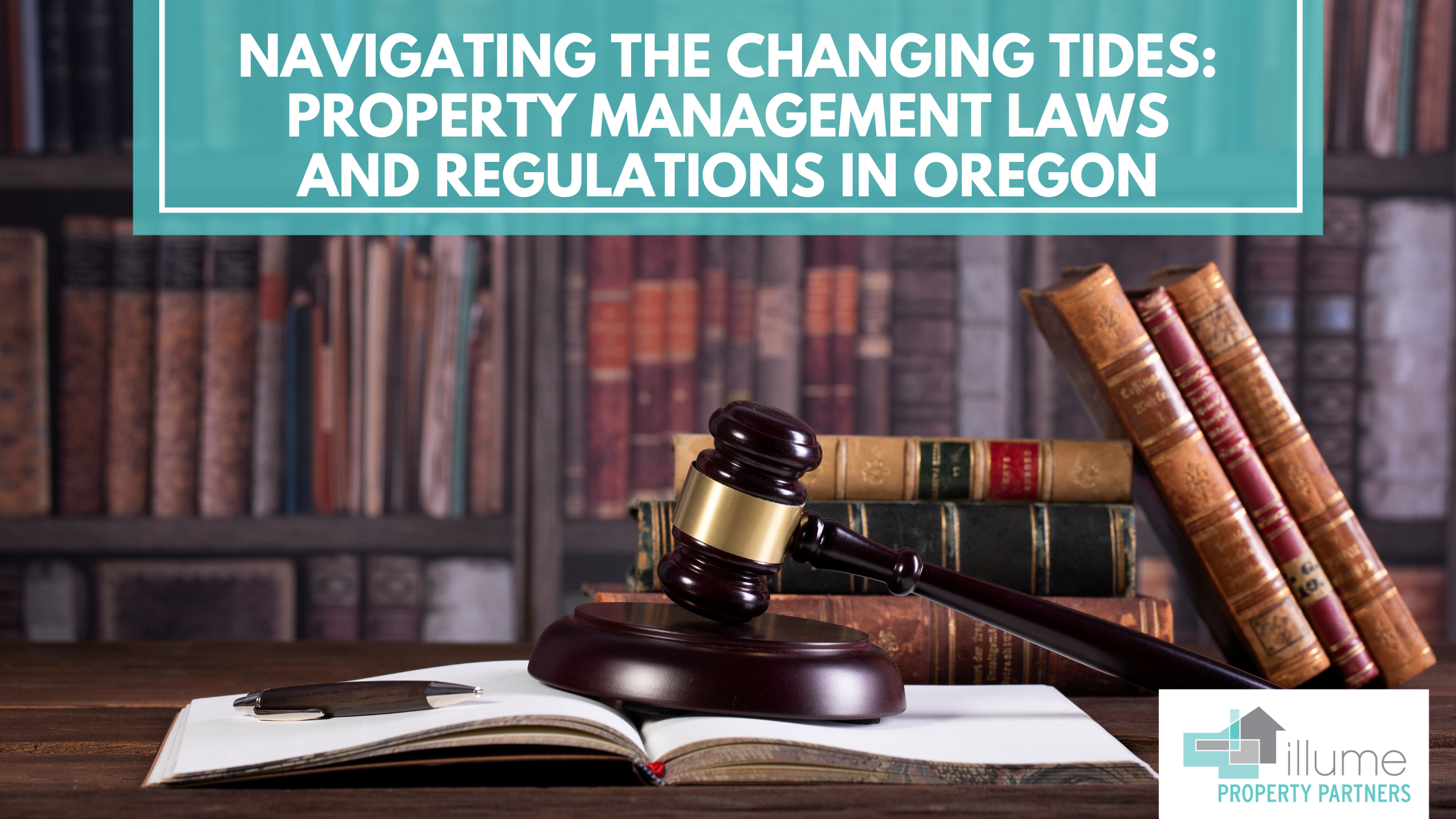The landscape of property management in Oregon is constantly evolving, with new laws and regulations continually shaping the way property managers operate. Staying informed and compliant is crucial for success in this dynamic environment.
Local Level Changes:
At the local level, Oregon cities like Portland have introduced specific ordinances that impact rental properties. For example, recent changes in Portland's regulations include stricter criteria for tenant screening and security deposit limits. These local ordinances often set the tone for broader state-level regulations, making it essential for property managers to stay abreast of city-specific changes.
Stricter Tenant Screening Criteria: The Fair Access in Renting (FAIR) rules in Portland, introduced in March 2020, are designed to make tenant screening more equitable and inclusive. These groundbreaking ordinances address the use of criminal records, income requirements, and credit scores in tenant screening, aiming to eliminate discriminatory practices and barriers that negatively impact marginalized groups. The FAIR rules represent a significant step towards ensuring fair access to housing by modifying traditional screening criteria and fostering a more inclusive approach to evaluating potential tenants.
Security Deposit Limits: As of 2024, the regulations for security deposits have specific requirements. If a landlord includes the last month's rent as part of the security deposit, they can only charge an additional amount equal to half a month's rent. Without the last month's rent requirement, the maximum security deposit a landlord can collect is equivalent to one month's rent. Additionally, landlords must offer installment payment options for these deposits, especially in cases where an extra deposit is requested due to conditional lease approvals.
State Level Updates:
Statewide, Oregon has been a forerunner in enacting progressive property management laws. One of the significant changes has been the statewide rent control law, which limits annual rent increases. Additionally, Oregon has passed laws regarding eviction processes, requiring longer notice periods and providing more rights to tenants. These changes necessitate a thorough understanding and strategic adjustments in property management practices.
Senate Bill 608 - Statewide Rent Control: As of 2024, Oregon's Senate Bill 608 continues to regulate rent control and eviction protections statewide. Enacted in 2019, the bill limits annual rent increases to 7% plus the Consumer Price Index, with a cap at 10% for 2024. It also provides tenant protections from no-cause evictions after the first year of occupancy. Exemptions include new constructions for their first fifteen years and regulated affordable housing. SB 608 aims to offer stability to tenants while allowing landlords to adjust rents within specified limits. For more detailed information on the bill and its current implications, visit the Oregon Office of Economic Analysis and the Oregon Housing Alliance.
House Bill 2001 - Residential Zoning: Oregon's House Bill 2001, enacted in 2019, continues to influence residential zoning to boost housing availability. This legislation mandates that Oregon cities with over 2,500 residents update their Accessory Dwelling Unit (ADU) codes, removing occupancy and off-street parking requirements for ADUs from January 2020. The bill guides the Land Conservation and Development Commission to implement the Oregon Housing Needs Analysis policy, promoting increased housing production, affordability, and diversity. House Bill 2001 plays a pivotal role in Oregon's strategy to address housing needs and expand options for residents
Federal Compliance Requirements:
On the federal level, property managers in Oregon must comply with laws like the Fair Housing Act, which prohibits discrimination in renting or selling properties and HUD Guidelines on Emotional Support Animals. Recent amendments to this act and other federal laws have further clarified and expanded the responsibilities of property managers, especially in terms of ensuring equality and non-discrimination.
Fair Housing Act Amendments: As of 2024, the Fair Housing Act continues to enforce non-discrimination in most housing situations, safeguarding against bias based on race, color, religion, sex, familial status, disability, and national origin. While there were no specific recent amendments focusing on disabilities and accommodations, the Act mandates reasonable accommodations for persons with disabilities. Furthermore, HUD's proposed "Affirmatively Furthering Fair Housing" rule aims to combat historic segregation and foster inclusive communities, aligning with the Act's principles. For more details, visit HUD's Fair Housing Act overview.
HUD Guidelines on Emotional Support Animals: The U.S. Department of Housing and Urban Development (HUD) recognizes that assistance animals, including emotional support animals, are not pets. Housing providers are required to accommodate individuals with disabilities who have assistance animals. This means that even in properties with no-pet policies, landlords must make reasonable accommodations to allow tenants with emotional support animals. These accommodations are necessary to afford a person with a disability equal opportunity to use and enjoy a dwelling, in compliance with the Fair Housing Act. For more detailed information, you can visit HUD's page on Assistance Animals.
Staying Updated and Compliant:
For property managers, staying informed is key. This can be achieved by:
-Regularly attending local real estate and property management seminars.
-Subscribing to state and national property management associations.
-Keeping an eye on legislative changes and seeking legal counsel for complex matters.
The evolving landscape of property management laws and regulations in Oregon presents both challenges and opportunities. By staying informed and adapting to these changes, property managers can not only ensure compliance but also offer better services to their clients and tenants. Embracing these changes and using them to enhance business practices is the way forward in the ever-changing world of property management.
Find out more about rental news, managing rental properties, and find helpful advice on maintaining your rental investments with illume Property Partners.


